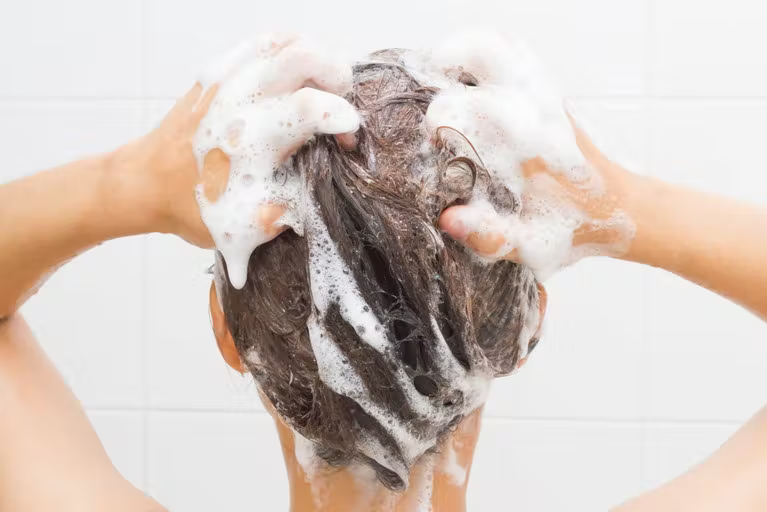When Egyptians started an ancient method to exfoliate their skin using wine and tartaric acid as the active agent centuries ago, they were already trendsetters of their time. Although we don’t recommend their methods in modern times, they surely knew what they were doing if they wanted to achieve youthful and vibrant looking skin. But should we exfoliate? Is there really a necessity to? The truth is, even though exfoliators are 100% necessary, the wrong ones can do more harm than good. Harsher products can create micro-tears in your skin, weakening its protective barrier and encouraging bacteria which may cause break outs and spots. However, there are gentler products that contain weak acids that dissolve the sticky substance that binds pore-clogging dead skin cells together, leaving you with glowing skin.
There are 2 main types of skin-smoothing acids:
- alpha hydroxyl acids (AHAs)
- beta hydroxyl acids (BHAs)
AHAs (eg. mandelic acid, glycolic acid, tartaric acid or lactic acid) exfoliate while also hydrating, making them ideal for sensitive skin, dry skin or redness-prone skin.
BHAs (the most popular one is salicylic acid) dissolve dead skin cells on the surface but also deep clean the pores, breaking down any oil lodged inside
Exfoliating benefits - 5 crucial reasons
1. Exfoliating helps remove dead skin cell build-up
Our skin regenerates every 27 days. Which means there could be countless layers of old skin cells lying on top of newer, younger skin layers. When you exfoliate, you flush away these older skin cells and dirt that has accumulated in your pores will also be scrubbed away. This can help prevent acne or pimples that are caused by bacterial infection. Your pores can also appear to diminish in size as the dirt is removed from your pores.
2. Improved skin texture after exfoliation
Furthermore, exfoliating these dead cells away will help our skin renewal process to speed up and make way for newer skin cells below. The result is younger, softer, smoother, and more supple skin.
3. Exfoliating aids in skin hydration
After exfoliation, your skin is better able to absorb moisturisers as your pores are clear and more receptive to water molecules. Any water-based moisturisers or hydrators will be able to absorb into your skin much more easily, resulting in your skin looking more supple and smooth.
This also applies to your skincare products too; the benefits of your skincare products can be absorbed easier and deeper into your skin. Thus, you can get more from your products and be able to see the results easier.
4. Exfoliating helps fade acne scars
As mentioned before, scrubs and exfoliating helps in promoting skin cell turnover. Which means? Mild to moderate discolorations and acne scars can diminish over time as healthier skin resurfaces.
5. Maintain youthful skin
As much as we wish time could stand still, it unfortunately doesn’t. As we age, our skin ages as well – it becomes less supple and elastic. It will also become drier, causing lines and wrinkles to appear easier. When you exfoliate, you are clearing away the dead cells accumulated over the years, and your skin has a chance to look radiant, maintaining its youthful glow.Summary
Knowing what exfoliation is about is important but knowing how to exfoliate is even more important. Try to exfoliate at least once a week, especially before you use any types of sheet masks or serums, so as to elevate your skin’s ability to absorb the active ingredients in your sheet masks and serums. Choosing a good exfoliator is important as a wrong one could cause disastrous reactions to your skin.
Exfoliate today – your skin will surely thank you for it!



